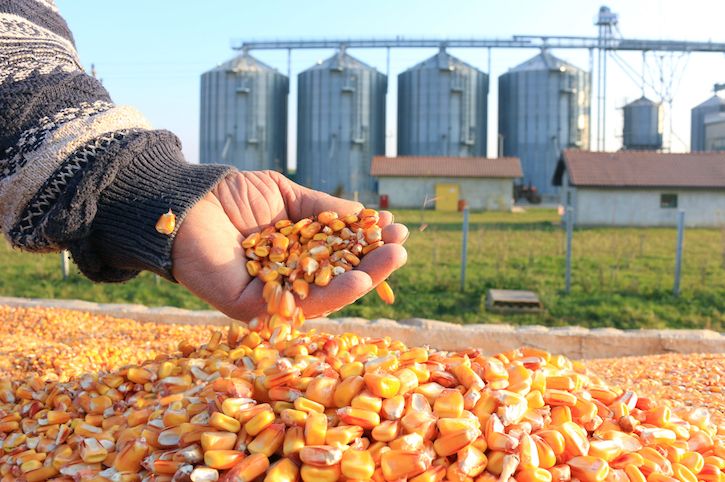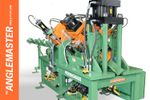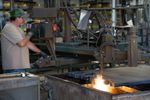Bulk corn storage is typically accomplished by using some form of bulk corn silo. There are three traditional methods of construction for these types of bulk storage solutions:
-
- Bag silos — basically big plastic bags that lay on the ground
-
- Concrete silos — custom engineered silos built at the storage site
-
Metal silos — bolted or welded carbon steel tanks fabricated in a shop
Below, we’ll run through the characteristics of each type of silo and explain why we think a metal construction is generally the best option for a bulk corn silo.
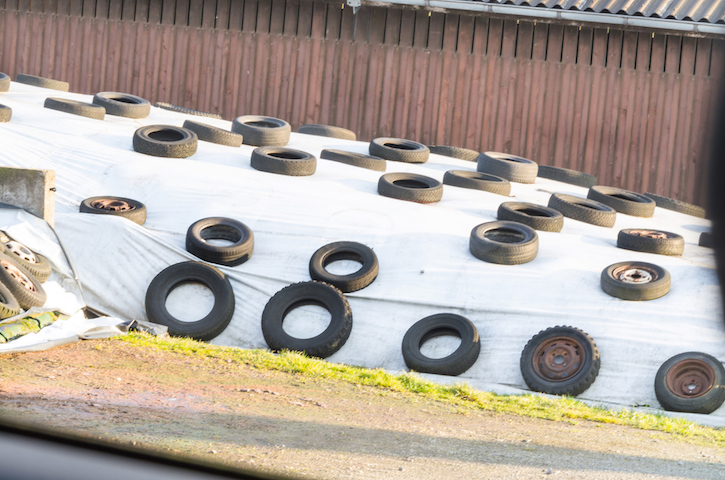
Bag Silos
As mentioned above, bag silos are essentially bags made out of thick plastic that encapsulate mounds of grain in order to preserve them against the elements. Most have multiple layers of 8.5 – 9-mil-thick plastic.
Relative to a bulk corn silo made out of steel or concrete, a plastic bag silo is very inexpensive. This is a bag silo’s main advantage over other types of silos: It is cheap.
However, there are many limitations and risks that come with using a bag silo as a bulk storage solution for corn:
-
- Short-term solution — Without any temperature control and ventilation to preserve the enclosed grain, a bag silo can only ever be a temporary solution.
-
- Fermentation — High-moisture grains, such as the corn used for dairy feed, are particularly vulnerable to fermentation in an oxygen-deprived bag silo.
-
- Limited capacity — A single bag silo can’t be engineered to store more than 200 tons of grain at a time.
-
- Large footprint — Bag silos lie on the ground, taking up a lot of space on a horizontal axis.
-
- Breakage — A plastic sheet is relatively easy to pierce. Rodents and debris from nearby farming equipment frequently breach bag silos.
-
Difficult to unload — There’s no using gravity to flow grain out of a bag silo; it has to be pumped out.
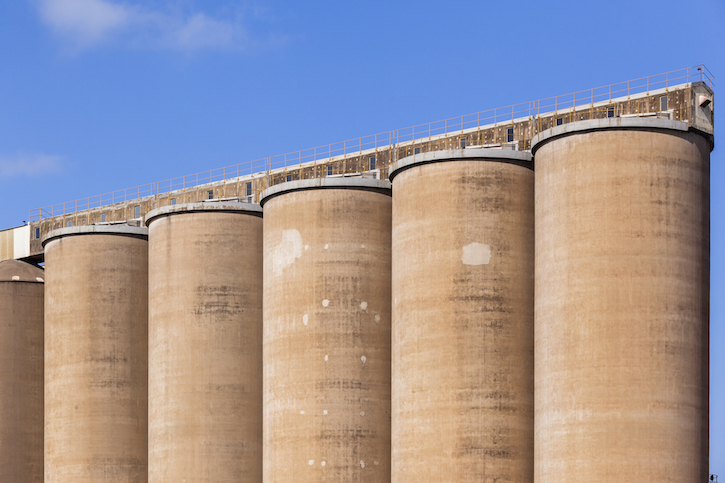
Concrete Silos
Concrete silos are custom, permanent installations that are built on the premises. As such, they are the most expensive of the three options under consideration when it comes to building a bulk corn silo. For concrete silos to be cost-effective, they should only considered for applications that require silos with diameters greater than 30 feet.
Besides cost, a few other limitations should be taken into account when considering a concrete bulk corn silo:
-
- Variable timelines — Because concrete silos are constructed on site, they involve many contingency factors, such as weather conditions, that can lead to unexpected delays.
-
- Difficult to accessorize — Adding industrial access equipment such as doors, platforms, and ladders can be challenging when dealing with a concrete silo.
-
- Strict foundation requirements — Concrete silos have to be built on firm soil that can support the substantial weight of the structures.
-
- Diminished flow — Compared to metal, concrete facilitates less flow unless it is lined with a supplementary material such as ceramic or polyurethane.
-
Cracking — Concrete is very rigid and can crack if subjected to significant force such as that caused by an earthquake.
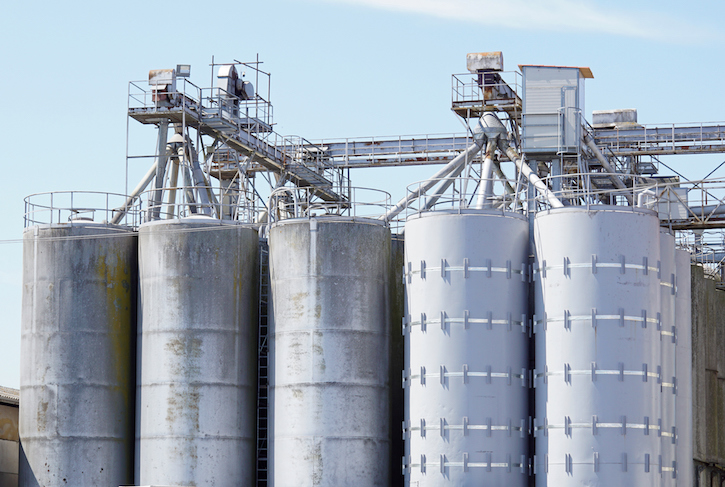
Metal Silos
A metal bulk corn silo will usually be made out of thick carbon steel plate. Metal silos can be fabricated is sizes less than 30 feet in diameter as well as greater than 30 feet in diameter, and can be up to nine stories tall.
While not as cheap as plastic bag silos, metal silos are much less expensive than concrete silos with welded metal construction being a bit pricier than bolted metal.
Although they typically provide the best value for long-term vertical grain storage, metal silos have a few limitations that should be weighed when considering them for bulk corn storage.
-
Structural integrity — Metal silos can be subject to vertical buckling. This can be mitigated with thicker plate, welded construction, and stiffening rings.
-
Corrosion — While all silos are subject to damage from abrasion and impact, metal also has to contend with rust.
-
Flow limitations— If inward-facing welds aren’t done properly, they can restrict material flow.
Why Metal Is Generally Best for a Bulk Corn Silo
For the customer looking for value, speed, and quality, metal will generally be the best option for a bulk corn silo as metal silos provide the most vertical storage capacity per dollar, can be fabricated and installed quickly, and are built in controlled environments.
On the value side of things, a metal silo is a relatively inexpensive, long-term vertical storage solution. This means less of a facility’s footprint will be taken up by storage and that grain will be stored in carefully regulated conditions that prevent various forms of feed degradation such as fermentation.
When it comes to timing and quality, a metal silo can be fabricated in weeks and then shipped to its destination — sometimes in one piece — for easy installation. No lengthy construction project that could be subject to subcontractor availability or weather is required.
Fabrication happens in the controlled environment of a custom metal fabricator’s shop, which not only insulates the project from potential delaying factors such as weather, but also facilitates greater control over quality.
For more information about why metal is the best choice for a bulk corn silo, please contact us at Southern Metal Fabricators. We’ve built many a bulk storage solution, including a bulk corn silo or two (hundred).
